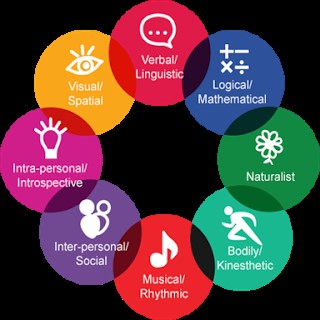Multiple Intelligence- a Pediatrician’s perspective
Dr.S.Subramanian
The variety and dynamism that I see in the children that come to me, enthuses me. Alas! I find that most of the time, their potential is not brought out. I keep pondering if there could be a means to tap the apt means to bring out the best in every child. Multiple Intelligence could be one way to do so.
Dr Howard Gardner, Prof of education in Harvard University developed this theory of Multiple Intelligence. This has helped educators, psychologist and parenting experts understand how children process and learn information.
This is a theory that directly challenged the traditional understanding of intelligence and its evaluation.
According to this theory every child has seven different intelligence. Once we understand this, it becomes easy to present a given information in a pattern that may best suit a given child.
The domains are (as seen in the picture)
Linguistic, logical- mathematical, spatial, bodily-kinaesthetic, musical, interpersonal, intrapersonal, natural and existential.
How are we to use this theory best? Though there are multiple ways in which this theory an be successfully applied in a daily life or class room setting, like any other idea, there has been an array of offshoots and methodologies that claim to have originated from MI theory. Dr Gardner, himself has suggested three possible ways in which this theory can be applied in day to day setting.
- Multiple approaches to a concept, subject matter or discipline- creating variety of ways in which a single item can learnt. The more the number of approaches more likely that more children are understanding the concept better. This can be especially be done to make children understand and explore and get hands- on with respect to certain important concepts.
- Personalisation of education: understanding a child’s strength and understanding that essentially all of us are different in the way we approach a learning. MI theory takes this concept seriously. As a corollary, when the aim is to help a child understand a key concept or help a child understand a specific field of learning it needs to be individualised to the child’s strength based on MI.
- Cultivation of desired capabilities: schools should plan to cultivate skills and capabilities that are highly valued in a given society. For eg if in a community performance of musical instrument is considered important, then it is important and of high value for schools to cultivate intelligence related to that domain.
Yes, multiple Intelligence does explain to us why a given child takes to a specific domain like music or public relation easily. But it also gives us approach or pathways to reach, teach and inculcate concepts that are considered important for a child to be part of the community as a whole.

